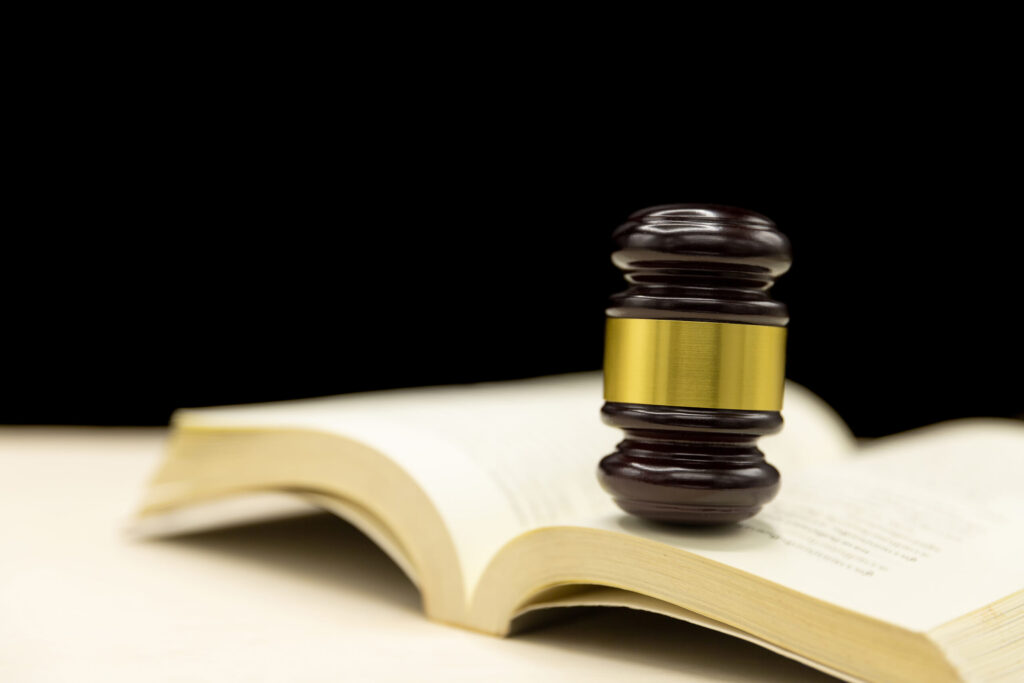Driving Under Influence is a serious charge and implies that your abilities and judgement have been seriously impacted by the presence of alcohol, THC, or prescription medications in your blood stream.
DUI laws are there not only to ensure the safety of the driver but also the public. However, with more cars than ever on the road, there is an increase in the number of DUI incidents. Canada implements strict checks and penalties where DUIs come in.
Let’s take a look at what constitutes DUI and all that you need to know on associated laws, legal limits, and how to respond to a DUI charge.
What is a DUI in Canada?
Under Canadian Law, an offense falls under driving under the influence (DUI) if the driver in question is operating a motor vehicle of any form while their driving abilities and judgement are impaired due to the influence of alcohol or drugs. They can also be charged with a DUI if their blood alcohol level is higher than the legal limit of 0.08% or if they refuse the breathalyser or blood test.
While alcohol is the most commonly known substance that causes a DUI, certain other substances that cause a DUI are narcotic drugs, cannabis, and certain prescribed medications.
Driving under the influence often leads to dangerous driving and impaired driving. While they overlap, one is different from the other. In impaired driving, the driver’s ability to operate the vehicle is impaired by alcohol, cannabis, or other drugs. In dangerous driving, the driver completely deviates from the behaviour of a prudent driver, posing risk to others with negligent and often reckless behaviour.
Legal BAC Limits and Testing Methods
In Canada, the legal BAC limit is set at 0.08% for most drivers. However, the rules differ for young, probationary, and commercial drivers. To ensure road safety and impress on the importance of responsible driving, BAC limits for them are set at zero.
Legal BAC Limits in Canada by Driver Type
A tabulated list of legal BAC limits set for different types of drivers is as follows:
| Driver Type | Legal BAC Limit (%) | Notes |
|---|---|---|
| Fully Licensed Drivers | 0.08 | Criminal offense at or above this level |
| Young/Novice Drivers (<21) | 0 | Zero tolerance for any detectable alcohol |
| Commercial Drivers | 0.00 | Strict limits for safety reasons |
Table 1: Legal BAC limits
Common Sobriety Tests in Canada
If suspected of a DUI, the law enforcement authorities may ask you to perform one or more tests which include breathalyzer, blood, and saliva tests. These are designed to check if you are truly driving under the influence, and if so, the extent of the violation.
Failing the administered Standardized Field Sobriety Test (SFST) may lead to an arrest, a suspension of your license, and fines. Further, you will be charged if you refuse to comply with the testing.
The usual tests conducted when suspected of a DUI are:
| Test Type | Description |
|---|---|
| Walk-and-Turn Test | Walk heel-to-toe in a straight line |
| One-Leg Stand Test | Stand on one foot for a set time |
| Horizontal Gaze Nystagmus | Track an object with eyes for involuntary movements |
| Roadside Breathalyzer | Quick alcohol presence screening device |
| Evidentiary Breath Test | Official breathalyzer for BAC measurement |
| Oral Fluid Test | Detects presence of drugs (e.g., THC) |
Table 2: Sobriety Tests and Their Description
Penalties for DUI Offenders: Can You go to Jail for DUI in Canada
Often, the penalty for DUI in Canada is decided not just on the severity of the charges but also on whether it’s a first, second, and subsequent offense. Further, charges usually differ as criminal charges and provincial penalties. Jail time is a possibility based on the seriousness of the action and the offense number.
Usually these include fines, license suspensions, mandatory alcohol education programs, installation of ignition interlock devices on the vehicle, vehicle impoundment, and even jail time.
Further, having a DUI on your record can impact the insurance premiums on your future vehicles and ability to get an employment that requires you to drive.
BAC Range and Corresponding Penalties (Alcohol)
As per the BAC range, the penalties for a DUI in Canada are as follows:
| BAC Range | Penalty Range |
|---|---|
| 0.08 – 0.119 | $1,000 minimum fine, license suspension |
| 0.12 – 0.159 | $1,500 minimum fine, harsher suspension |
| 0.16 and above | $2,000 minimum fine, potential jail time |
Table 3: BAC range and their penalty
Tabulated List of Possible Penalties as Per Offense Number
Further, if you have a prior DUI criminal record in Canada those will count as your prior offenses. Based on your offense number, possible penalties can be:
| Offense Number | Minimum Fines | License Suspension | Jail Time | Other Penalties |
|---|---|---|---|---|
| 1st Offense | $1,000 (min) | 1 year | Possible | Mandatory education programs, vehicle impoundment |
| 2nd Offense | Increased fines | 2 years | Minimum 30 days | Ignition interlock device required |
| 3rd Offense | Higher fines | 3+ years | Minimum 120 days | Longer ignition interlock periods |
Table 4: Penalties for DUI s per offense number
DUI Laws and Cannabis Legalization
In addition to alcohol, Cannabis also falls under the purview of driving under influence. Further, cannabis impairment differs from alcohol impairment. Alcohol impacts judgement, reaction time, and motor coordination, while cannabis affects attention and spatial perception.
Though cannabis has been legalized in Canada in 2018 for recreational use, strict limits are set on THC blood concentrations. As per federal legislation the limit is set at 2 ng/mL. Enforcement tools for cannabis include roadside saliva drug tests and drug recognition experts.
DUI Penalties Involving Impairment by Cannabis or Combined Substance Use
Based on THC blood levels, DUI penalties for cannabis include:
| Substance | Threshold | Minimum Penalty |
|---|---|---|
| THC > 5 mg/mL | Drug-impaired driving | $1,000 minimum fine |
| THC > 2.5 ng + BAC > 0.05 | Combined drug and alcohol effect | $1,000 minimum fine |
| Refusal to provide sample | N/A | $2,000 minimum fine, license suspension |
Table 5: Penalties for DUI involving Cannabis as per substance detected
Recent Amendments and Future Changes to DUI Laws
In 2018, the Canadian government empowered the police with Mandatory Alcohol Screening (MAS), allowing breath tests without suspicion. Further, the police have been instructed to conduct Standardized Field Sobriety Tests (SFSTs), oral fluid testing, breathalyser, and take help of Drug Recognition Experts (DREs) for drug impairment.
Technological improvements have also been made in terms of sobriety checkpoints and automated roadside screening. Certain provinces like Alberta, Ontario, and Quebec have strict ignition interlock programs. Additionally, the government is trying to raise awareness on cannabis-impaired driving risks.
DUI record suspension in Canada is a rare possibility due to the introduction of strict laws and standards. Future reforms may expand ignition interlock requirements and increase penalties for BAC and THC blood levels.
License Suspension Duration Based on Convictions (Federal and Provincial)
Presently DUI record for license suspension and conviction in Canada as per federal and provincial laws are as follows:
| Conviction Count | Suspension Duration |
|---|---|
| 1st Conviction | Minimum 1 year |
| 2nd Conviction (within 10 years) | 3 years |
| 3rd Conviction (within 10 years) | 5 years |
| 4th or Subsequent Conviction | Lifetime suspension |
| Impaired driving causing bodily harm | 10 years |
| Impaired driving causing death | Lifetime suspension |
Table 6: License Suspension for DUI based on convictions
How to Handle a DUI Charge
Wondering how to beat a DUI charge in Canada? Know that If you get stopped for a sobriety test and charged with a DUI, it is important that you understand the charges, and comply with the police. Resisting the test or the arrest will lead to additional charges.
You may fight the charges on the basis of procedural errors, faulty breathalyser, and lack of reasonable doubt. You may also enter a plea deal to ensure reduced charges.
What to do after a DUI arrest
If arrested, you have the right to remain silent and seek legal representation. Use both. Exercise the right to remain silent if arrested since any statements made will be on record and can be used against you. Get in touch with a lawyer with experience in DUI cases and appoint them to work on your case.
Gather information about your arrest, such as the location, time, circumstances, who the arresting officer was, their badge number, charges listed, and results of the sobriety tests administered. Ask for full disclosure from the prosecutor within 30 days of your arrest.
If you get a bail pending trial, comply with the terms set to avoid further penalties and legal complications. Prep for your court appearance with help from your lawyer. You may also look into plea deals and alternative resolutions.
How long does a DUI stay on your record in Canada?
A DUI criminal record in Canada will stay forever. Unless extraordinary circumstances are proved, the record of arrest and penalty served will be made a part of your permanent record.
Once the duration of your penalty is over, it is time to get your license reinstated. Be sure to adhere to the rules and avoid DUIs in the future.
Prevention and Public Awareness
Drivers are not only responsible for their own safety, but that of the passengers, those cars around them, and pedestrians. Thus, it is important to drink responsible and not drive if you have been partaking in alcohol and cannabis.
There are resources and community programs to reduce DUI incidents. Further, it is important to seek help if you are engaging in alcohol dependent behaviour.
Technology like ignition interlock devices have done well to add a layer of safety by preventing DUIs. Further, it is the responsibility of the people to educate themselves about the dangers of a DUI. Offenders may also reach out support networks to address the root cause which led to the DUI.
Wrapping Up
When it comes to driving, road safety rules are of utmost importance. Thus, it is important to be aware of the consequences of a DUI and ensure compliance whenever you are behind the wheel, not only for your safety but for that of others.
Drive Responsibly and Stay Informed of DUI Laws
Are you a new driver or one getting their license reinstated? Drive sober, stay safe, and know your rights. And be sure to contact a lawyer if you have been charged with a DUI.
Frequently Asked Questions
Can I be charged for impaired driving if I’m only under the influence of cannabis?
Yes, cannabis impairment is illegal while driving and police use specific tests to detect it.
What are the penalties for a first-time DUI offense in Canada?
Penalties include fines, license suspension (typically 1 year), and possible jail time; they vary by province.
Are there special rules for commercial vehicle drivers regarding DUI?
Yes, commercial drivers face stricter BAC limits (often zero or near zero) and harsher penalties.
What is an ignition interlock device?
It is a breathalyzer connected to a vehicle’s ignition requiring a clean breath test to start the vehicle, often mandated after DUI convictions.


